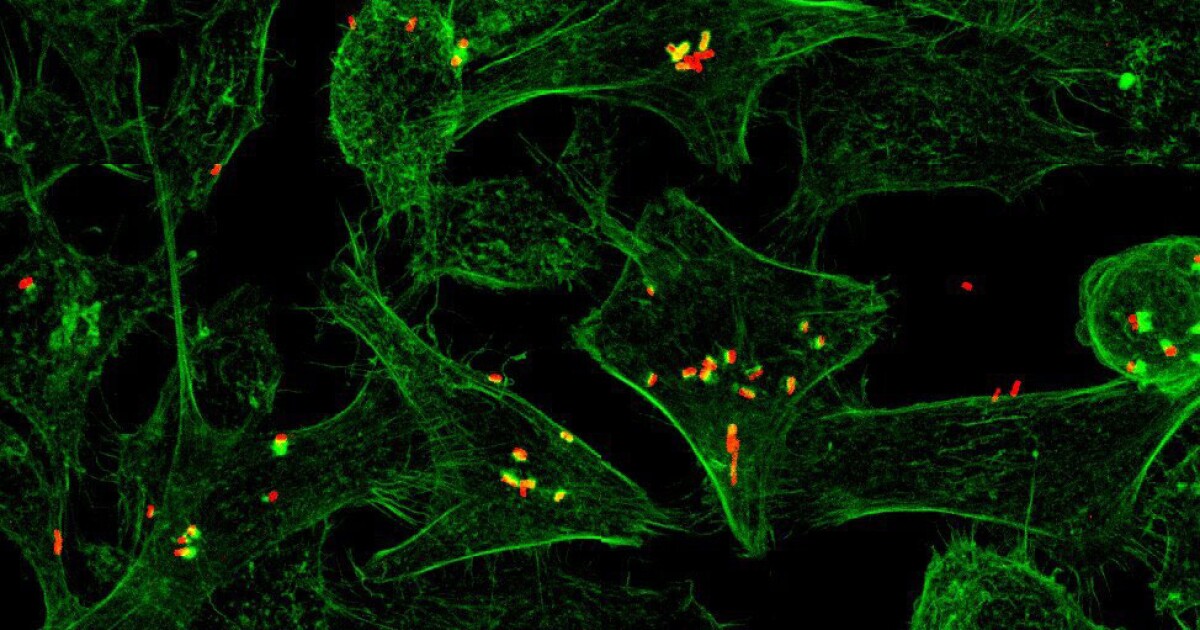Bacterial immunity holds the key to vaccines against diarrheal ... - New Atlas

Some people with bacterial gut infections remain symptom-free while passing the infection on to others. A new study has shed light on the interplay between bacteria, diet and the immune system that occurs with a common diarrhea-causing pathogen. It may have opened the door to developing a vaccine that prevents the dehydration and malnutrition caused by diarrheal diseases.
Our bodies fight bacterial infections in one of two ways: killing the invading pathogen outright or impairing it, meaning it hangs around in the body. The latter leads to 'asymptomatic carriage,' meaning that although the host has no symptoms of infection, they can still spread it to others.
While the bacterium Escherichia coli (E. coli) is generally harmless, certain strains cause watery or bloody diarrhea, stomach cramps, nausea and vomiting, and fatigue. Diarrheal diseases such as those caused by E. coli are common in low- and middle-income countries and can lead to malnutrition. According to a 2023 study, they're the second leading cause of death in children under five globally. There is no vaccine to prevent diarrheal diseases.
Researchers at the Salk Institute for Biological Studies in California, US, have looked at asymptomatic carriers, the mechanisms underlying the development of immunity to disease-causing bacteria, and whether it could be harnessed for therapeutic purposes.
"Being able to generate lasting immunity against bacteria like C. rodentium or E. coli has not been possible using established vaccination strategies," said Janelle Ayres, corresponding author of the study. "We wanted to figure out what mechanism was sustaining this lasting immunity, so we could use that mechanism to create an impactful solution to these diarrheal diseases."
Citrobacter rodentium, or C. rodentium, is a mouse-specific gut pathogen that models human infection with the bacterium E. coli.
Back in 2018, Ayres and her team of Salk researchers found that dietary interventions created a cooperative relationship between bacteria and host where the host remains asymptomatic despite infection. They found that mice fed a diet rich in iron were able to survive a bacterial infection that would otherwise have been lethal by increasing the amount of unabsorbed glucose in the intestines, giving the bacteria something to feed on and thereby reducing the likelihood they'd attack the host. The findings led researchers to believe that the mice's adaptive immune system, which 'remembers' infections, might be involved in producing long-term asymptomatic infection. Humans also possess an adaptive immune system.
In the current study, the researchers focused on whether asymptomatic infection led to long-term immunity and whether that kind of immunity could be reproduced as a vaccine.
To examine whether diet affected asymptomatic infection, the researchers fed mice either an iron-rich or a normal diet for two weeks after being infected with C. rodentium. The mice fed an iron-rich diet displayed no symptoms immediately after infection, whereas those fed a normal diet did. All mice were then put on a normal diet to see whether the symptomless infection lasted.
Regardless of whether they'd been fed the iron-rich or normal diet, mice whose adaptive immune system had been genetically compromised couldn't maintain a cooperative relationship with the bacteria. The mice with functional immune systems remained asymptomatic, and their bacterial immunity lasted even when they were reinfected with C. rodentium after a month. Based on their findings, the researchers concluded that the adaptive immune system was a necessary part of maintaining long-term bacterial immunity.
The researchers also found that the degree of bacterial mutation played a role. They repeated their iron-rich vs. normal diet experiment using bacteria that could and couldn't cause disease. They found that only the mice that received the unmutated, disease-causing bacteria maintained their immunity after reinfection.
While the researchers need to confirm their results in human subjects, they say their findings open the door to developing a vaccine against diarrheal diseases.
"We discovered that immunization against diarrheal infections is possible if we allow the bacteria to retain some of its disease-causing behavior," Ayres said. "This insight could lead to the development of vaccines that could reduce symptoms and mortality, as well as protect against future infections."
The researchers have urged people not to consume large amounts of iron after reading their study.
The study was published in the journal Science Advances.
Source: Salk Institute
Comments
Post a Comment